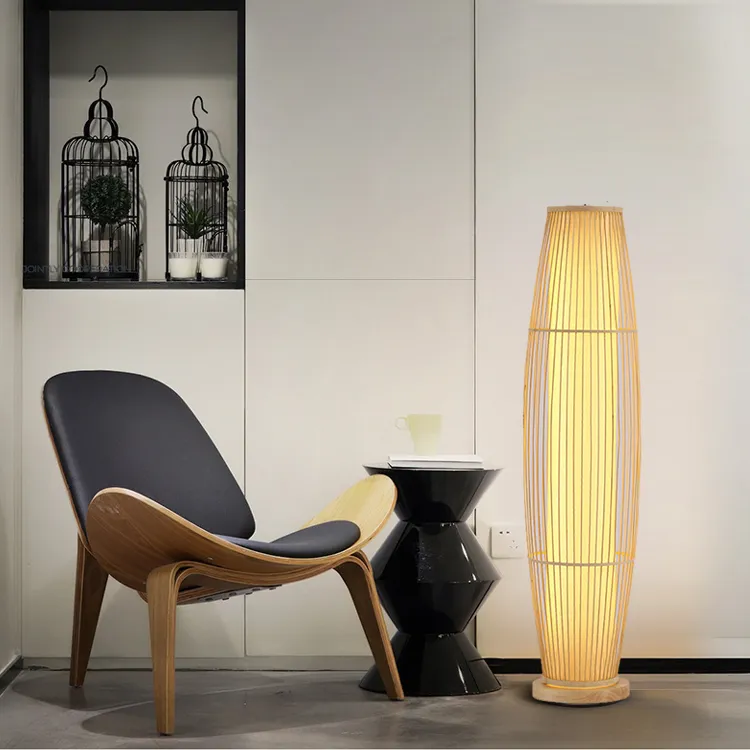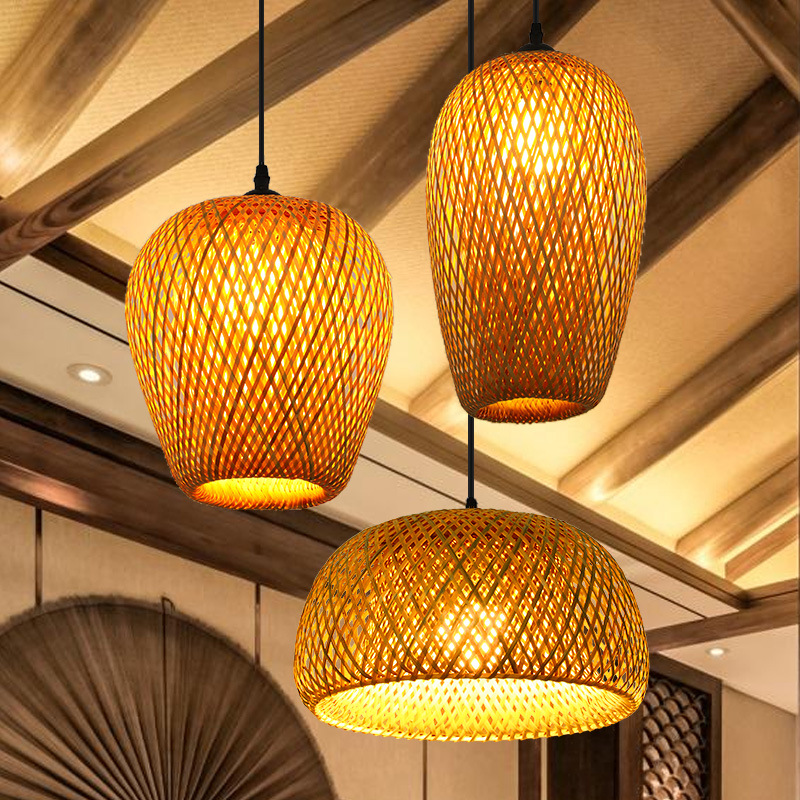Are you wondering if your light fixtures need to be grounded? Grounding your light fixtures may sound complicated, don’t worry, it’s actually a simple step to keep your home safe.
Follow along with XINSANXING's article for a deeper dive into why grounding is so important and how to do it with ease!
Before we dive into the specifics of grounding and why it’s important, let’s break down everything you need to know about light fixture grounding and how they protect your home’s electrical system.
What is a wire ground?
Grounding is an important safety feature in your home’s electrical system that is designed to protect people and property from potential electrical hazards. When electricity flows through your appliances and light fixtures, it’s supposed to follow a specific path through the wiring system.
However, if a wire is loose or damaged, the current can stray from its intended path, creating a serious risk of electrocution or fire. Grounding safely redirects stray electrical current to the earth, providing a reliable path to prevent dangerous electrical energy from building up.
This process is critical for homes with metal-encased appliances or fixtures, as metal surfaces can become electrically charged in the event of a malfunction. Typically made of bare copper, the ground wire provides a second path for electrical current to return to the earth, ensuring that your appliances remain safe even if a fault occurs.
Why have a second return path?
The second return path is provided by the ground wire, which acts as a safety net in case the main circuit fails. Typically, an electrical circuit consists of a "hot" wire, which powers the appliance, and a "neutral" wire, which returns the current to the power source.
Ideally, these two wires complete the circuit without any problems. However, if something disrupts that flow, such as a broken or loose wire touching a metal surface, the ground wire steps in.
This additional return path is critical because it directs dangerous current away from the fixture or appliance and returns it to earth through the home grounding system.
Without a second return path, any metal part of the fixture could be live, and anyone who touches it could be electrocuted.
How does grounding relate to your light fixture?
Grounding is an important safety feature that protects your light fixture and the people who use it from potential electrical hazards. Here's how grounding interacts with your light fixture, focusing on properly grounded systems and those that lack adequate grounding.
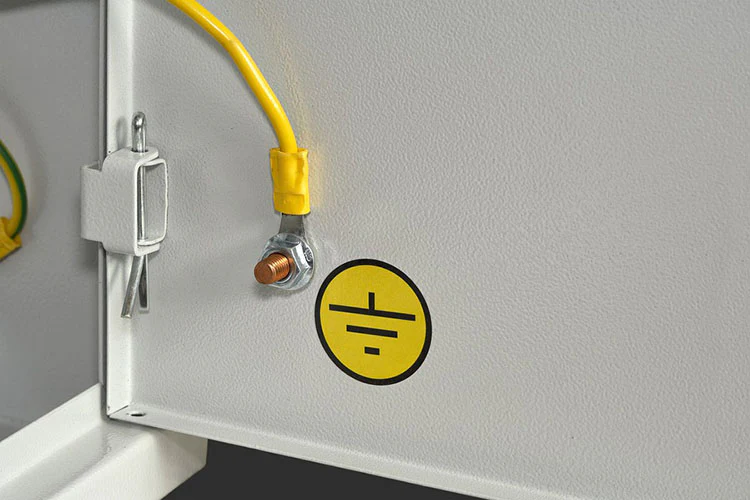
Example 1: Use a Proper Ground Wire
When your circuit is wired with 14/2 cable that contains a properly secured ground wire connected to the panel ground bus, this greatly increases safety. Each junction box should also have a secure ground wire attached to it, providing a reliable path for any stray currents.
Loose Hot Wire
If a hot wire becomes loose due to excessive handling, it could come into contact with metal parts within the light fixture. If this happens, the grounding system trips. Current rushes in through the ground wire, which trips the circuit breaker, cutting off power and preventing a potential shock or fire hazard. This automatic safety feature is essential to protecting users from dangerous situations.
Loose Neutral Wire
The ground wire again plays an important role if the neutral wire becomes loose and comes into contact with the metal casing of the light fixture. A properly grounded system provides a second path for the current to flow, even if the light still comes on intermittently. This ensures that no dangerous voltage builds up on the fixture housing, providing a safer environment for users.
Example 2: Electrical Panel Not Properly Grounded
In older buildings or due to a broken ground wire, the lack of a secure connection between the panel and the junction box can create a significant safety risk.
Loose Hot Wire
If a hot wire becomes loose and contacts a metal part of a fixture, the entire fixture could become energized. Without a proper grounding system, the circuit breaker will not trip because there is no return path for the current. This situation can be fatal; if someone touches a live fixture, the current could flow through their body to the ground, causing an electric shock without the circuit breaker tripping.
Loose Neutral Wire
When the neutral wire becomes loose and contacts a metal part while the fixture is energized, the consequences can be serious.
How do I ground a light fixture?
To ensure your light fixture is properly grounded, follow these steps:
Step 1: Identify the ground wire: Look for the bare copper wire, commonly called the ground wire.
Step 2: Connect the light fixture: Securely connect the ground wire to the ground terminal on the light fixture. This terminal is usually marked with a green screw.
Step 3: Connect to the electrical panel: Make sure the ground wire is connected back to the electrical panel's grounding system, usually through a ground busbar.
Step 4: Follow local codes: Always refer to local building codes to ensure the grounding method is correct. If you are unsure, consult a licensed electrician for guidance.
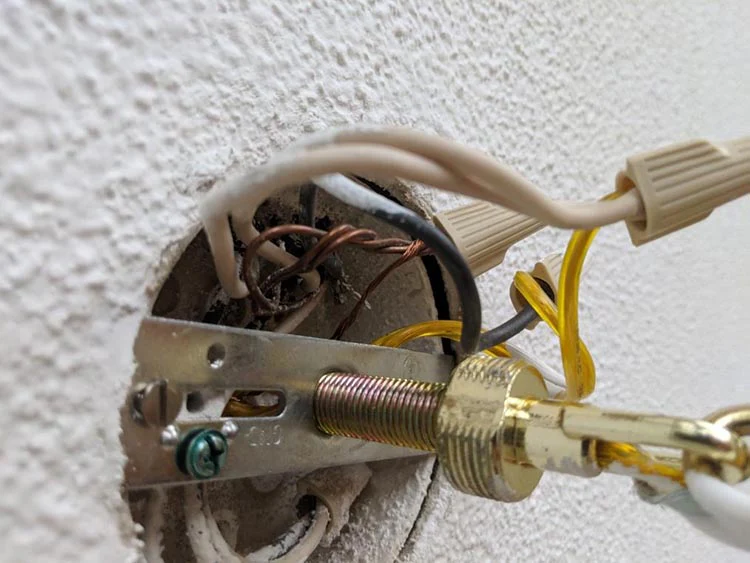
What happens if I wire my light fixture backwards?
Incorrectly wiring a light fixture can create significant risks, primarily related to resistance.
Low resistance hazards
If wired incorrectly, a light fixture can create a low resistance path, causing overheating. This can cause the light fixture to energize and create a serious fire hazard, as well as an increased risk of electric shock.
High resistance hazards
If the circuit resistance is high, it can cause erratic current flow. This can cause lights to flicker or light fixtures to malfunction, affecting lighting performance and creating additional safety hazards. It’s important to ensure that your wiring is done correctly to prevent these hazards.
By understanding what grounding means and the importance of proper wiring, you can significantly improve the safety and functionality of your fixtures. Regular inspections and compliance with local regulations will further ensure that your home’s electrical environment is safe.
FAQ:
Can I replace a regular outlet with a GFCI outlet?
Yes, you can replace a standard outlet with a ground fault circuit interrupter (GFCI) outlet, which increases safety by detecting an imbalance between the hot and neutral wires. This is especially useful in areas prone to moisture, such as kitchens and bathrooms.
However, if the existing wiring is not grounded, simply replacing a two-prong outlet with a GFCI does not establish a grounded system. For optimal safety, make sure your electrical system includes a proper grounding wire.
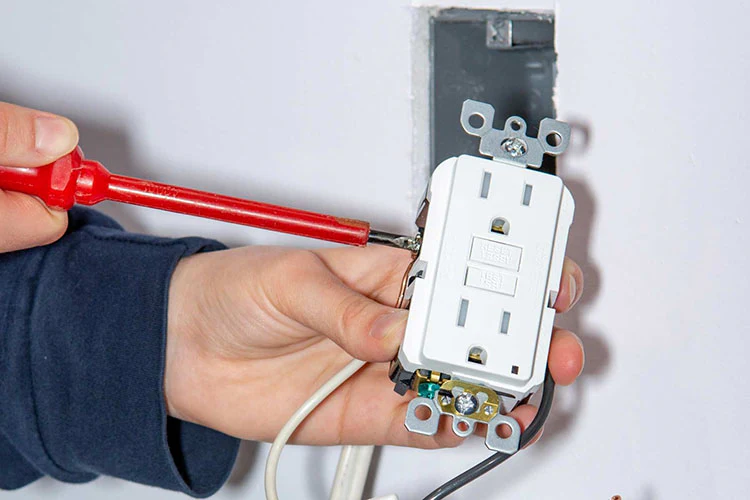
How can I ensure my lighting fixtures are properly grounded?
To verify that your lighting fixtures are properly grounded, first inspect your electrical system. You can use a specialized ground test tool or hire a licensed electrician. If your light fixture box is metal, securely attach the ground wire to the box.
For plastic boxes, grounding is not mandatory, but you can add a ground screw for added safety. If your system does not have a ground wire, you will need to install a ground wire to ensure safe and reliable operation.
Should I hire an experienced electrician to install and ground the light fixture?
It is recommended to hire an experienced electrician to install and ground the light fixture, especially if you are new to electrical systems. A licensed and insured electrician ensures compliance with local codes, which increases safety.
Grounding outlets typically cost $100 to $500, depending on the complexity of the job and the age of the home. Investing in professional installation not only ensures safety, but also ensures that the work is done correctly.
Precautions
Taking precautions is essential to maintaining a safe electrical environment. If you encounter problems such as an open ground wire or improper wiring, fix them promptly.
For major rewiring, consult a qualified electrical contractor to ensure safety. If purchasing a home, consider hiring an inspection agency to evaluate the electrical system, especially in an older home.
Regular inspections can help prevent small problems from escalating into major hazards, protecting your family and property. Always put safety first and stay informed and proactive about your electrical system.
Grounding light fixtures is an important safety measure to prevent electrical hazards. While not all light fixtures need to be grounded, especially those made of non-conductive materials, metal light fixtures should always be grounded to prevent electric shock and ensure safe operation.
If you are unsure about the wiring or grounding conditions in your home, consulting a licensed electrician is the best way to ensure safety and compliance with electrical codes.
If You Are in Business, You May Like
Post time: Dec-21-2024










